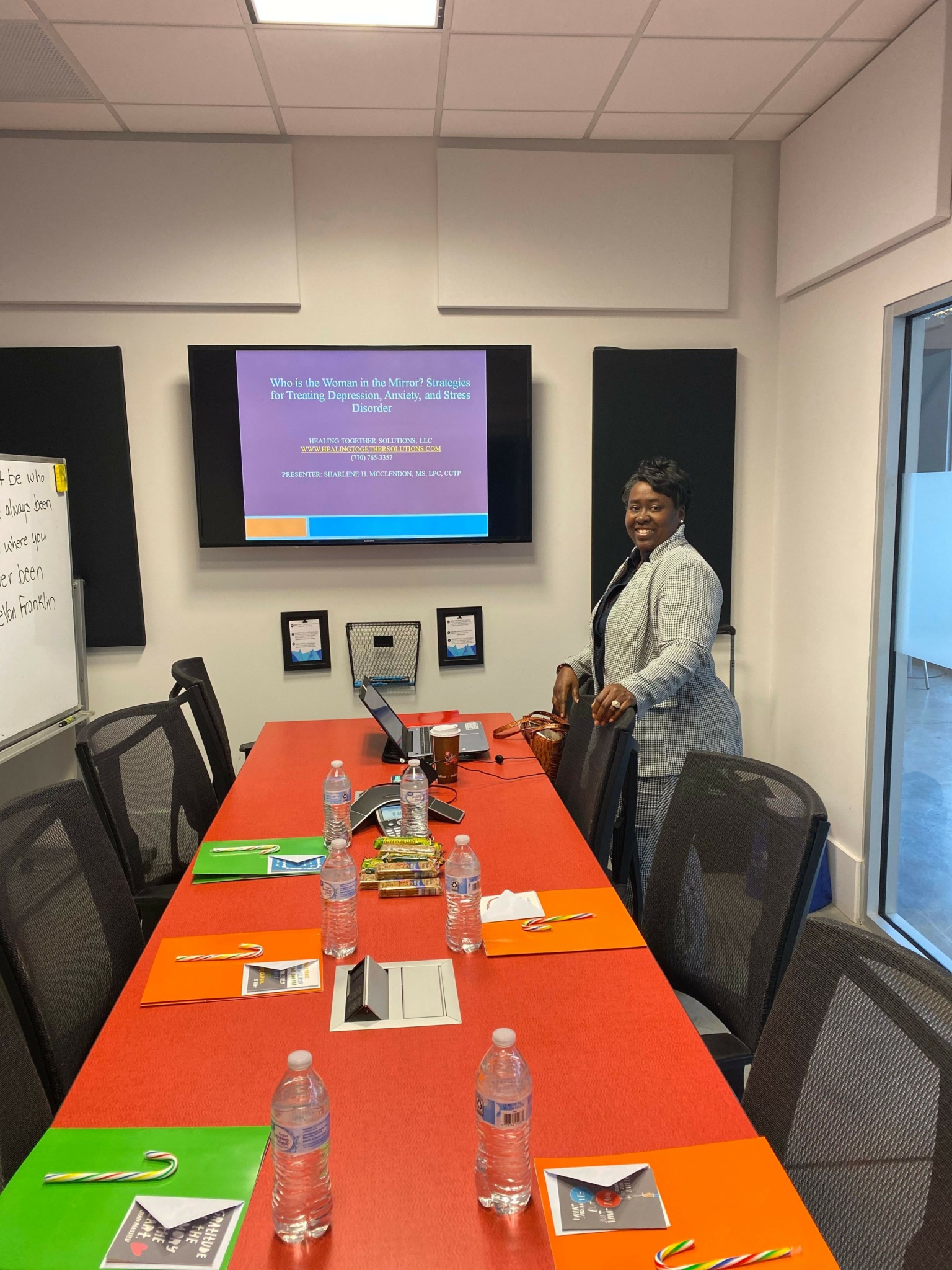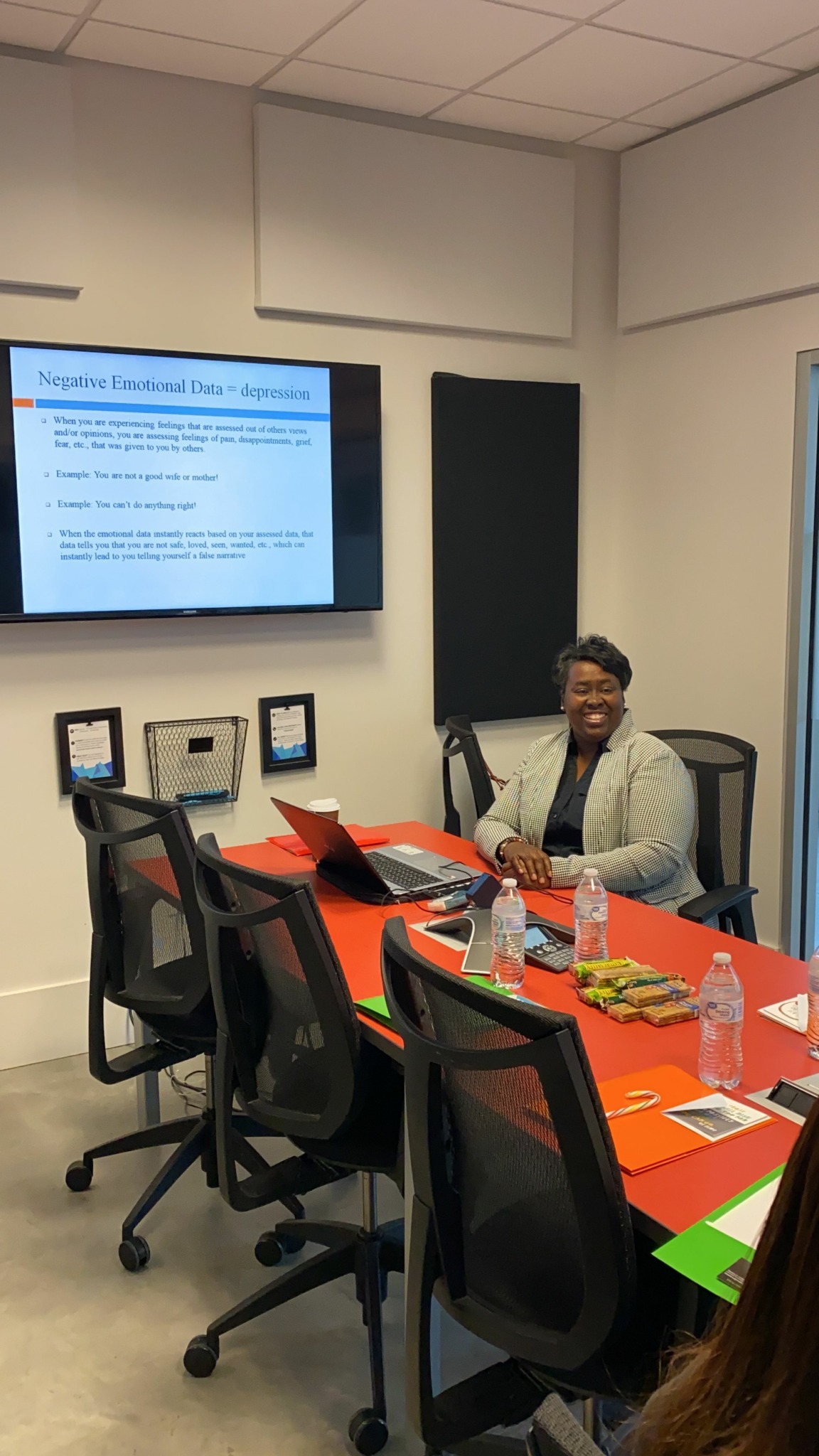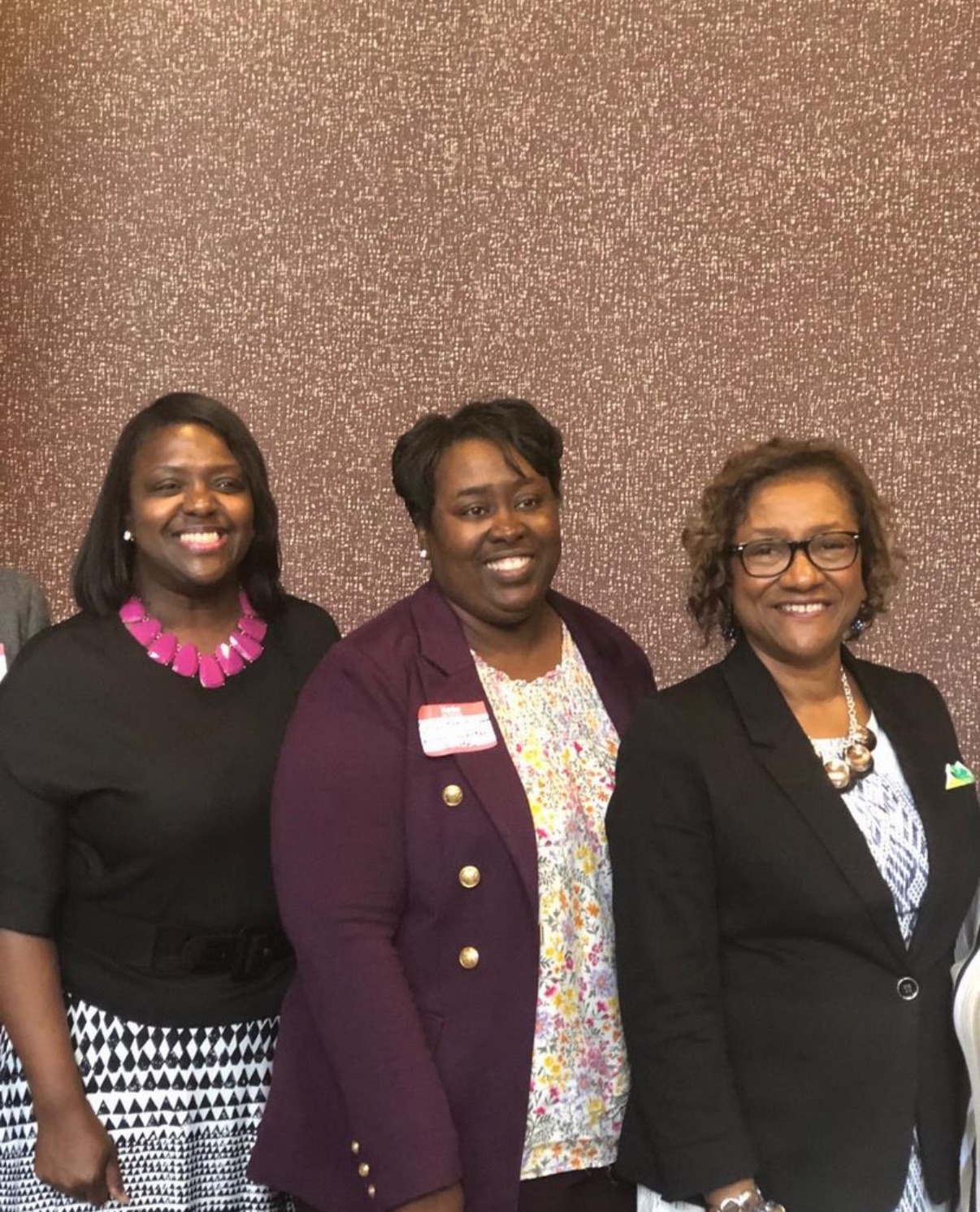We caught up with the brilliant and insightful Sharlene McClendon a few weeks ago and have shared our conversation below.
Sharlene, thanks for joining us, excited to have you contributing your stories and insights. If you had a defining moment that you feel really changed the trajectory of your career, we’d love to hear the story and details.
When I reflect on the defining moment of my professional journey, I am reminded that becoming a mental health counselor was less of a career decision and more of a calling—one that had been woven into the fabric of my life long before I ever had words for it.
I didn’t grow up aspiring to be a therapist. But looking back, I see how the roots of this path reach back through generations. I come from a family that stood in the gap, offering comfort, strength, and sanctuary to those in need. My grandparents were quiet but steady anchors in their community. My grandmother’s hands didn’t just prepare meals—they nourished entire households with love. My grandfather’s strength wasn’t loud, but immovable, and people leaned on it when they had nowhere else to turn.
And in between their legacy and mine stood my mother.
She was a pillar of love, of support, and courage. She embodied the values she inherited from her parents and lived them in full measure, extending her heart to everyone she met. Whether she was offering a listening ear, an open door, or a word of encouragement, my mother had a way of making people feel seen, safe, and deeply cared for. She taught me, by example, that compassion isn’t a feeling—it’s an action.
In many ways, I was walking in their footsteps long before I realized it. Even before I entered this profession, I was unknowingly a bridge for others—listening, comforting, and encouraging. But I hadn’t yet learned to be those things for myself.
That began to change when I started my healing journey. Through therapy, I began to uncover the parts of myself that had been buried under obligation, expectation, and the instinct to care for others first. I found my voice. I found my identity beyond the roles I played. I found hope, not just for others, but for myself.
That moment changed everything.
Today, as a Licensed Professional Counselor, I carry both clinical training and lived experience. I create safe, sacred spaces for people who feel lost, isolated, or burdened by pain they don’t yet have language for. I hold space not just as a clinician, but as a woman who knows what it means to lose herself, and to find herself again.
I stand on the legacy of those who came before me—my grandparents, my mother. Their quiet, unwavering acts of service live on in my work. What they planted through love, I nurture through therapeutic practice, education, and advocacy.
This is not just what I do. It is who I am.
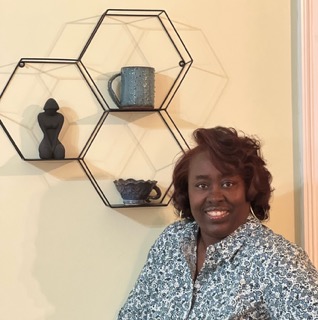
Sharlene, before we move on to more of these sorts of questions, can you take some time to bring our readers up to speed on you and what you do?
For those who have not met me yet. My name is Sharlene H. McClendon, and I’m a Licensed Professional Counselor (LPC), Certified Clinical Trauma Professional (CCTP), and Certified Professional Counselor Supervisor (CPCS). I’m also the founder of Healing Together Solutions, LLC, where I provide trauma-informed therapy, mental health education, and community-based training. But more than anything, I am a woman who has done and continues to do the work of healing. That personal experience is the foundation of everything I bring to the people I serve.
I didn’t always know I would become a mental health professional. This calling revealed itself over time through reflection, lived experience, and a deep desire to support others the way I had once needed support for myself. Looking back, I can see that the seeds of this work were planted long before I entered the field. My grandparents were quiet yet powerful caregivers in their community, always showing up with food, refuge, and care when others were in need. My mother was a pillar of love, support, and courage, continued that legacy with grace. She had a gift for making others feel safe, heard, and valued, and she taught me that compassion is not just a value—it’s a way of life.
Even before I became a licensed therapist, I was informally holding space for others, listening, encouraging, and walking with them through pain. But it wasn’t until I began my healing through therapy that I discovered the power of reclaiming my voice, my worth, and my identity. That transformation became the foundation for how I now help others heal and grow.
At Healing Together Solutions, I work with individuals dealing with anxiety, trauma, grief, burnout, broken promises, and relationship challenges. I also provide consulting and training to organizations, helping them create culturally responsive and healing-centered spaces where people feel supported and seen.
In addition to my private practice, I’m an author whose work has been featured in Chicken Soup for the Soul, Up Journey, and DiaBeaters, where I write about emotional wellness, resilience, and the intersection between mental and physical health. I also host the podcast Me, Myself, and I: How to Have a Relationship with Yourself, which explores how we can cultivate deeper, more compassionate relationships with ourselves in everyday life.
As a speaker, I present on a wide range of mental health topics. I work with the Georgia Department of Behavioral Health and Developmental Disabilities (DBHDD), speaking on subjects such as Co-Occurring Disorders, Suicide in Veterans, Suicide in Colleges and Universities, and Compassion Fatigue CE. I also serve as a speaker for both the DeKalb and Gwinnett County Boards of Health, offering community education on depression, anxiety, and their connection to chronic illnesses like diabetes, bridging the gap between physical and emotional health, especially in underserved populations.
What sets me apart is not just my training—it’s my lived experience. I understand what it feels like to be emotionally overwhelmed, unseen, or disconnected from your true self. I bring that empathy and insight into every space I hold. I’m known for being both direct and deeply compassionate, and for creating environments where healing is not just possible, but inevitable when people feel safe enough to show up as they are.
I also serve on the Region 3 Advisory Council for the Georgia DBHDD, where I advocate for improved access and equity in mental health care, particularly for marginalized communities. But what I’m most proud of is the trust my clients place in me and the opportunity to walk with them through some of the most personal, challenging, and transformational moments of their lives.
If there’s one thing I want people to know about me and my work, it’s this: You don’t have to carry it all alone. Healing is possible. Change is possible. And you are worthy of the time, care, and space it takes to come home to yourself.
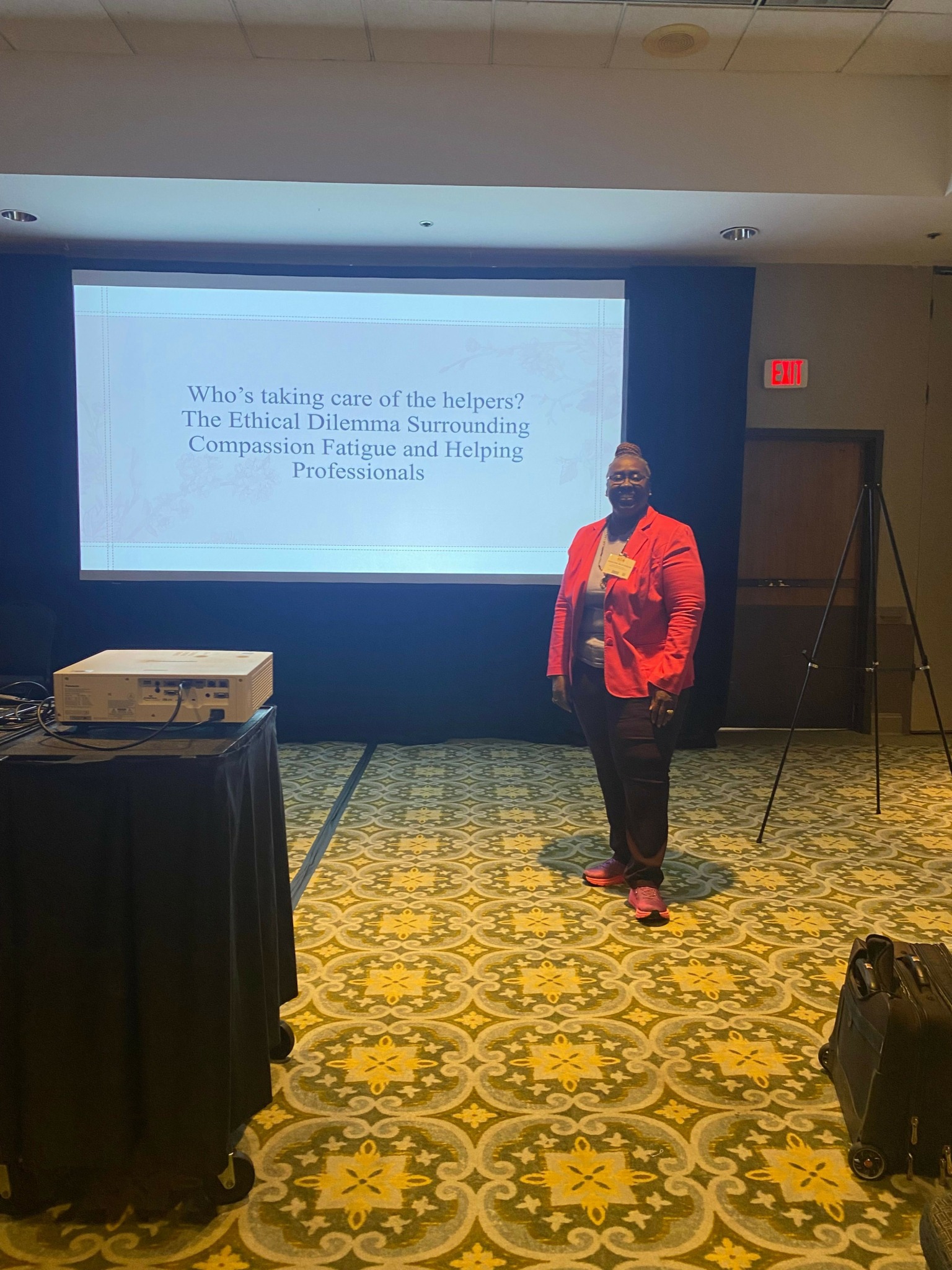
Training and knowledge matter of course, but beyond that what do you think matters most in terms of succeeding in your field?
Honestly, the most helpful thing for me in this field hasn’t just been education or credentials, though I’ve worked diligently for those, and they matter. Clinical training sharpens your tools, but what will sustain you in this work goes far deeper. What’s grounded me most is the unwavering belief that I was called to this path, not by accident, but by divine appointment. I truly believe God chose me to be a bridge for hurting people, just as the generations before me were in their own quiet, powerful ways. For me, this work is sacred. It’s not just a profession—it’s a calling. It’s a service. It’s obedience.
That said, one of the most important lessons I’ve had to learn again and again is understanding where I end and where God begins. In the mental health field, especially when you are heart-led, it’s easy to cross that invisible line. It’s easy to want healing more than the client does, to carry burdens you were never meant to hold, to absorb pain instead of witnessing it. And if you’re not careful, that over-identification can lead to burnout, resentment, and emotional exhaustion.
This has helped me endure and grow in this field is doing my work consistently. That means going to therapy myself. That means resting, setting, and honoring boundaries, and refusing to make my clients’ progress a reflection of my worth or competency. I’ve learned that I am not the healer but a vessel. My role is to create safety, speak truth, offer tools, and walk beside people, not ahead of them. I hold space, but I don’t fill it with myself. The rest belongs to God.
Success in this field, for me, is about staying in alignment with the One who called me. It’s about doing the internal work so I can show up present, clear, and grounded for the people who trust me with their stories. It looks like creating safe and brave spaces for others without losing myself in the process. It means knowing how to be compassionate without becoming consumed. It means honoring boundaries, mine and theirs, and releasing the outcome.
Mental health work will stretch you, refine you, and humble you constantly. It will test your patience, your faith, and your capacity. But when you’re clear about who sent you and who sustains you, you stop striving—and you start serving. That’s where the real power is. That’s where transformation begins, not just for your clients, but for you too.
So, if you’re called to this work, know this: yes, pursue the training, the credentials, the supervision. But also pursue your wholeness, because the most powerful tool you’ll ever have in this field is a grounded, healed, and present version of yourself.
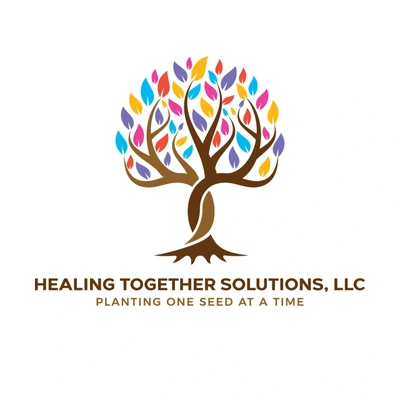
Do you think you’d choose a different profession or specialty if you were starting now?
If I could go back, would I choose the same profession?
Without hesitation—yes. Absolutely, yes.
Even knowing what I know now, even carrying the weight that comes with holding space for deep, complicated pain. Even with the emotional heaviness that sometimes lingers long after a session ends. I would still choose this path again. Not because it’s easy. It’s not. But because it’s sacred.
This work has never been “just a job” for me. It has always been an assignment one I didn’t fully understand at first, but one that God made clear over time. I didn’t stumble into this profession. I was sent. And if I’m honest, I don’t believe I had much of a say in it. I believe I was chosen to do this work long before I knew how to name it. The calling was already in motion, passed down through generations of quiet caregivers, my grandparents, my mother, who served others not with credentials, but with presence, compassion, and unwavering love.
Now, I get to do that in a different form. I get to sit with people in their most raw and vulnerable moments—when life has left them fractured, when trauma has stolen their voice, when depression, anxiety, grief, or shame has made them feel invisible. And somehow, in that sacred space, I’ve been entrusted to help them find safety again. Find themselves again. That’s holy ground. That’s the purpose in motion.
Would I choose this specialty—trauma, co-occurring disorders, grief, suicide prevention, burnout—again? Yes. These aren’t just topics I’ve studied; they’re lived experiences others have walked through and survived. I understand what it means to feel broken. And I also know what it looks like to rise. That perspective allows me to show up with clinical expertise and deep empathy. I don’t just know the symptoms, but I understand the weight. And I meet people there, not above them.
I also know the toll this work can take when you don’t set boundaries, you can confuse your calling with control, or when you try to carry what only God was meant to hold. I’ve learned sometimes that I’m not here to fix or save. I’m here to walk beside to hold space, to speak the truth, and to trust God with the rest.
What a gift it is to know your life’s purpose and have the courage to walk in it. There’s a certain peace that comes with that grounding and clarity. I know now that my healing wasn’t just for me. It was preparation for this and to guide others through their healing journeys. To remind them that they are not alone. That their pain is valid, but not permanent. That their story matters.
So yes—if I could go back, I would still say yes.
Yes, to the long and hard conversations.
Yes, to the emotional labor and the sacred silence.
Yes, to the growth, the stretching, the refining.
Yes, to being chosen for such a time as this.
Yes, to the journey.
Yes, to the calling.
Even on the hardest days, I know where I end and where God begins. And that reminder keeps me anchored.
Contact Info:
- Website: https://healingtogethersolutions.com/
- Instagram: https://www.instagram.com/sharlenehmcclendon/
- Facebook: https://www.facebook.com/sharlenehmcclendon1
- Linkedin: https://www.linkedin.com/in/sharlene-mcclendon-25435a31/
